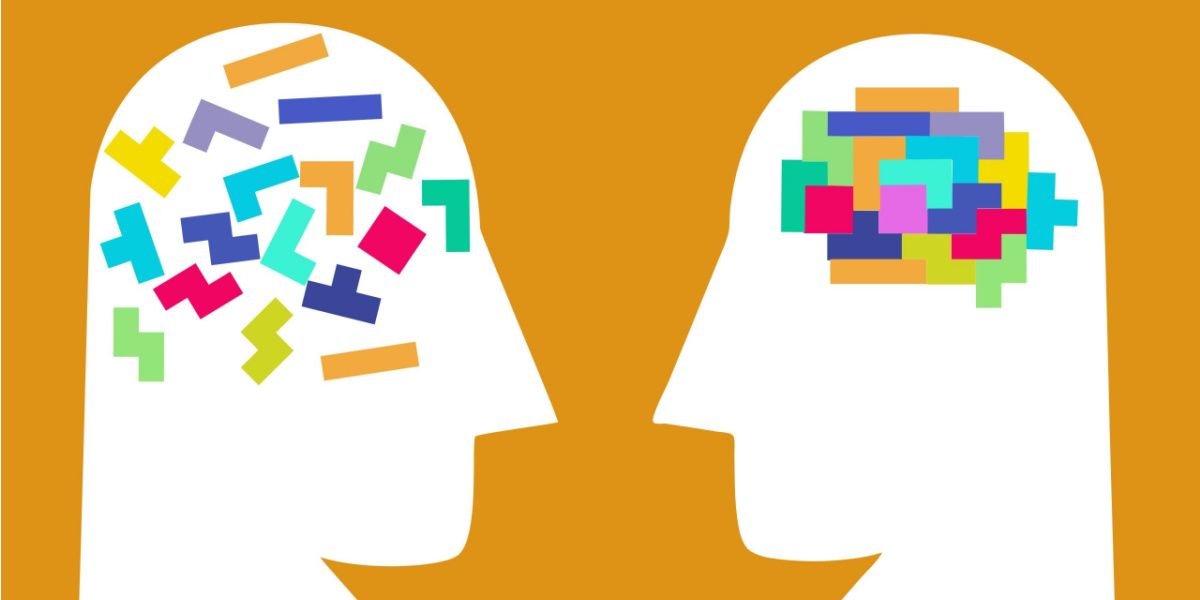Eating disorders are severe mental health conditions involving a disordered relationship with food and body image, low self-esteem, and emotional reactivity. This article discusses various types and symptoms of eating disorders, diagnosing methods, prevention, and treatment.
- The causes of eating disorders are still not well understood.
- Childhood trauma, social media, and weight bullying are considerable risk factors.
- Treatment plans include therapy, medication, and rehab.

What are eating disorders?
Eating disorders define a disordered relationship between food and individual body image.[1] These mental health conditions have severe psychological and physical consequences.
The different types of eating disorders can lead to distinct behaviors, emotions, and thoughts about food, body shape, and eating. Most people with an eating disorder will also exhibit a negative perception of their body and negative feelings surrounding food.
Types and symptoms of eating disorders
Each type of eating disorder has distinct symptoms. We will discuss the most common eating disorders and their manifestations below.
Anorexia
Anorexia is characterized by intense fears of gaining weight and energy intake restriction as a means to control body size. Anorexia prevents individuals from getting the essential nutrients needed to sustain healthy lives.[2]
There are two subtypes of anorexia - restrictive and binge-purge. Individuals with restrictive anorexia will subject themselves to extreme dieting, fasting, and intense exercise, without the presence of binging or purging. People with binge-purging anorexia may also engage in binging and purging episodes, which may include self-induced vomiting or taking medication, such as diuretics, diet medication, and laxatives.[3]
Bulimia
Bulimia nervosa is another common eating disorder. Bulimia typically consists of binge eating episodes, causing intense feelings of guilt, and leading to episodes of purging.[1][2][3]
In an attempt to “make up” for the binging episodes and control their weight, people with bulimia will commonly limit their food intake for a longer period. However, hunger, shame, and self-punishment worsen the addictive behavior, so the subsequent binge-eating episode becomes severe.[4]
During a binge, people consume massive amounts of food quickly. Individuals with bulimia experience a loss of control during these episodes, believing they lack the will to stop.
The binging episode is accompanied by shame, guilt, and worries about weight gain. That is why it is followed by purging behaviors to alleviate negative emotions and prevent weight gain. Purging can involve vomiting, taking weight loss medicine or laxatives, over-exercising, and abstaining from food.[4]
People with bulimia are also intensely concerned about their figure and weight gain, judging their physique very harshly.
Binge-eating disorder
Unlike bulimia, people with binge-eating disorders do not purge afterward. However, they experience a similar craving for food and a perceived inability to stop their eating spree.
Binge eating manifests by consuming large amounts of food, even without feeling hungry, at a fast speed. Individuals with this eating disorder do not stop even if they start feeling painfully full.[4]
The binging episode is followed by intense negative feelings, such as embarrassment, guilt, disgust, extreme weight gain fear, and repentance. These intense emotions commonly perpetuate the binge eating episodes, as a way to cope.
Avoidant or restrictive food intake disorder (ARFID)
ARFID is unlike anorexia because people with ARFID do not want to achieve an ideal body image and are unafraid of weight gain. Restrictive food patterns in individuals with ARFID are due to various causes, such as apathy toward eating and severe aversion to certain food items, colors, textures, or smells. People with restrictive food disorders may also be irrationally afraid of the risks of eating, such as choking, food poisoning, or getting stomach bugs.
People with this condition experience limited food intake, leading to nutritional deficiencies, affected growth, brain fog, and fatigue. The typical age group is children, though adults can experience it in lower percentages.[4]
Is food addiction an eating disorder?
Food addiction can be considered an eating disorder, particularly if the person cannot abstain from eating a certain food. People with food addiction may experience compulsive eating, orthorexia (eating only specific items perceived as very healthy), and binging episodes.
Food addiction is similar to substance addiction in terms of cravings, compulsive behaviors, and withdrawal symptoms.[6] The negative emotions surrounding it, such as embarrassment or guilt, are also similar.
Diagnosing eating disorders
The symptoms of eating disorders help medical professionals diagnose them. Healthcare professionals may conduct several tests along with an in-depth analysis.
Anorexia
The patient can admit to obsessing about specific macronutrients and calories, having a distorted body image, over-exercising, and refusing particular foods or meals.[7] They may also exhibit the following physical symptoms:
- Severe weight loss
- Constipation
- Stomach pain
- Amenorrhea
- Faintness
- Brittle bones, nails, and hair
- Growth issues[5]
Bulimia
Patients with bulimia can admit to binging, purging, or skipping meals. Scarred knuckles can be a sign of repeated vomit-inducing behaviors.[6]
People with bulimia may exhibit the following physical symptoms:
- Low blood pressure
- Arrhythmia
- Fatigue
- Blood in vomit and stools
- Tooth erosion
- Swollen cheeks[5]
Binge eating
People with this food disorder may experience low self-esteem, anxiety, and depression. They have coping difficulties when faced with strong emotions.
Binge eating is harder to diagnose but can be suspected in people with:
- Diabetes
- Increased blood pressure
- Increased cholesterol
- Fatty liver
- Sleep apnea[5]
ARFID
ARFID can show signs of:
- Blood tests showing a severe lack of minerals, vitamins, and protein
- Slow growth
- Anxiety
- OCD[5]
Patients with ARFID will admit to being picky eaters and rejecting specific foods or meals.
Causes of eating disorder
Eating disorders are thought to be caused due to a combination of factors, including genetics, childhood traumas, and sociocultural factors. Although there is no scientific consensus, certain studies investigate the possibility of certain genes increasing the risk of food disorders.[7]
Other research has probed into biological variables. Abnormal levels of hormones like ghrelin and leptin, which regulate appetite, may also influence a person’s propensity to develop a food disorder.[8]
Risk factors of eating disorders
Risk factors of eating disorders may include:
- A family history of negative relationships with food, such as frequent dieting, negative body image, or over-exercising
- Mental health issues, such as OCD, anxiety, and depression
- A history of extreme dieting and fluctuating weight
- Extreme social media use can create damaging and unrealistic body standards and create negative perceptions surrounding certain food items, perceived as unhealthy
- Weight bullying in childhood from family, teachers, or peers
- Stressful situations[7][4]
Signs and prevention for eating disorders
Each type of eating disorder exhibits different tell-tale signs.
Anorexia
- Severe weight loss
- Intense preoccupation with food items and macronutrients
- Wearing loose clothing to hide weight loss
- Extreme dieting and not eating with other people
- Cooking extensive meals for others
- Over-exercising
- Complaining about their self-perceived “fatness”
- Frequently checking their image in the mirror
- Muscle weakness
- Dizziness
- Lightheadedness
- Brittle hair and nails[1]
Bulimia
- Disappearing food
- Visiting the bathroom after eating
- Sounds and smells of purging
- Avoiding meals
- Excessive use of gum or mouthwash
- Not participating in family events[1]
Binge eating
- Disappearing food
- Hoarding food
- Stress eating
- Eating in secret[1]
ARFID
- Limited diet without medical prescription
- Bringing separate food at family events
- Refusing to eat certain food items[4]
- Fatigue
- Dizziness
- Fainting
- Lightheadedness
- Muscle weakness[3]
The causes of eating disorders are not yet well understood, so preventing these conditions may be difficult. The typical medical advice for prevention differs for adults and children.
Children
You can help prevent future eating disorders in children by:
- Exhibiting healthy food behaviors: Do not mention dieting around your children. Demonstrate to your children that it is okay to include all food items in their diet.
- Not presenting certain food items as punishment or reward: Do not let children believe you can earn specific food items after doing a certain activity, such as intense exercising or being “good” during the day.
- Avoiding food bullying: Avoid making comments about your children’s body image. Do not punish your children for craving specific types of foods.
- Connect with your children: Maintain a close relationship to foresee and prevent specific body image issues.
- Limit social media use: Prevent young children from interacting with dieting or fitness influencers online. Ensure your children are not part of social media groups encouraging extreme dieting or workouts.
- Consult your healthcare provider: If you have specific worries or notice specific symptoms, ask your doctor for advice.
Adults
Prevention methods for eating disorders in adults include:
- Honing healthy eating habits: Learn about nutritious foods and the advantages of eating all kinds of foods.
- Keeping a good mental health status: Treat pre-existing conditions that might facilitate eating disorders. Prioritize quality sleep, outdoor activities, and interpersonal relationships.
- Asking for help: If you notice signs of eating disorders, consult your healthcare professional and follow their customized treatment plan.
Treatment for eating disorders
Treating eating disorders could entail a mix of treatment facilities, therapy sessions, and medication.
Therapy
Effective therapy for eating disorders includes cognitive-behavioral therapy (CBT), dialectical-behavior therapy (DBT), and family therapy.[7]
Concurrent mental health disorders augmenting the eating disorder should also be addressed during therapy.[3]
Medication
Medication can be used to treat the effects and symptoms of eating disorders, as well as co-occurring mental health issues.[3]
Physicians may prescribe vitamins and minerals, mood stabilizers, or antipsychotics.[7]
Treatment Facilities
Attending a treatment facility may be necessary in severe cases. Treatment can include inpatient care, which incorporates a multidisciplinary approach to care. Individuals will meet with dietitians, therapists, and medical doctors.


-(1)-guide-detail.jpg?v=1722502701)

-guide-detail.jpg?v=1722503466)